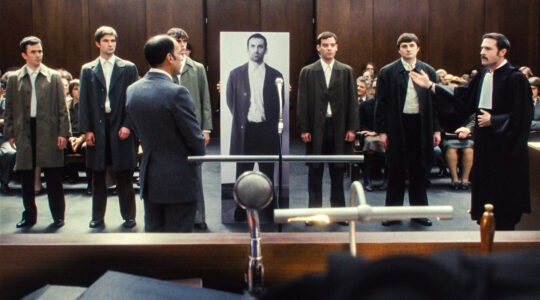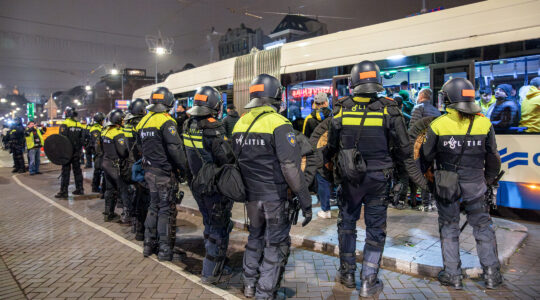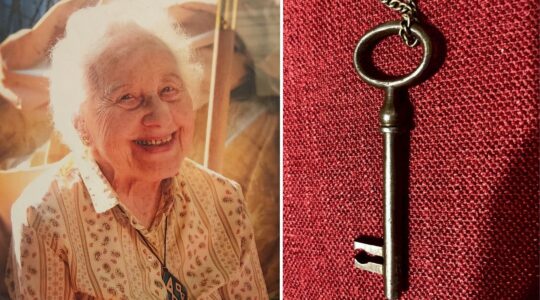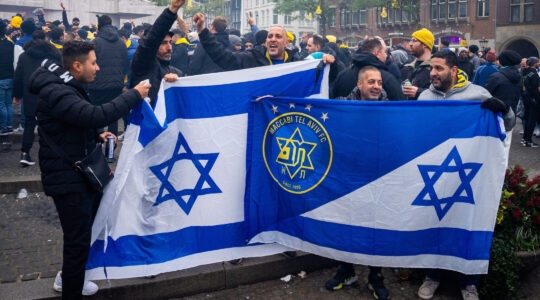BERLIN (JTA) — European foreign ministers are putting off the decision on whether or not to boycott the so-called Durban II anti-racism conference after anti-Israel content in a draft resolution was toned down.
Convening as their heads of state attended a European Council meeting in Brussels, the EU foreign ministers applauded the removal of references to the Arab-Israeli conflict. But they stopped short of fully endorsing the revision, indicating to the drafting committee that further changes must be made if EU countries are to attend the conference in Geneva next month.
The parley is a follow-up to the U.N. anti-racism conference in Durban, South Africa, in 2001, which turned into an Israel-bashing festival.
This time, many countries have been warier of the proceedings, with a few announcing they planned to boycott the conference for its anti-Israel and anti-Semitic tilt. They include Israel, the United States, Canada and Italy; Israel and the United States walked out of the ’01 event.
Following last week’s changes to the draft resolution, EU ministers said they still had a problem with the document’s tacit endorsement of the 2001 resolution and its calls for restrictions on the defamation of religion, among other problems.
Jewish leaders and other activists have had mixed reaction to the revisions, saying the document had been improved but not enough. Israel announced it would still boycott the conference.
Stephan Kramer, secretary general of the Central Council of Jews in Germany, said the revised text still refers to the problematic declaration from the 2001 conference.
“The all-clear has not been given,” he told the Tagesspiegel newspaper.
“I am not happy at all,” Klaus Faber, a member of the board of the Berlin-based Coordinating Council of German NGOs against Anti-Semitism, told JTA. The document is “better than the older draft but not good enough to say yes.”
In response Andreas Peschke, a spokesman for German Foreign Minister Frank-Walter Steinmeier, told JTA, “We have to pass along a strong message that we need to see further improvements in the right direction or else we cannot attend.”
Peschke said the next formal assessment would come late next week during an informal meeting of EU foreign ministers in the Czech Republic. He added that the foreign ministers planned to confer almost daily until they meet again.
According to the European Jewish Press, Czech Foreign Minister Karel Schwartzenberg said last Friday that compromise proposals for the resolution also had been presented by Egypt and Holland, including wording that would address anti-Semitism and anti-Israel discrimination.
Francois Zimeray, France’s ambassador for human rights, told the Jerusalem Post it was important to stay involved in the process. Calling the original draft resolution for Durban II “full of provocations,” he said France would have boycotted the Geneva conference if the draft had not been changed. While the new version is an improvement, Zimeray said, he remains unsure whether France will recommend attending the parley.
Sergey Lagodinsky, a founding member of the Caucus of Jewish Social Democrats in Germany, said the document’s revision is a positive sign: The document no longer singles out Israel explicitly, he said, and other issues “can be negotiated.”
“This is a working process,” he said. “Europe should stay in the process, trying to get a better document while being careful that other countries do not add anything to this that could be a problem, especially during the conference itself.”
Some Jewish activists called on Germany to set an example by withdrawing.
“Germany should take an exemplary step,” said Sacha Stawski, editor of the Frankfurt-based pro-Israel watchdog group Honestly Concerned. “Germany should be a forerunner when it comes to defending the State of Israel.”

Help ensure Jewish news remains accessible to all. Your donation to the Jewish Telegraphic Agency powers the trusted journalism that has connected Jewish communities worldwide for more than 100 years. With your help, JTA can continue to deliver vital news and insights. Donate today.





